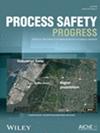Development and application of process safety competency framework in agroindustry: A case study
IF 1
4区 工程技术
Q4 ENGINEERING, CHEMICAL
引用次数: 0
Abstract
Events in industries have shown that a lack of process safety culture has an important contribution in driving the site to fail. The culture is composed of the values, competencies, and attitudes that drive the organization to success. Thus, competency is a core step in developing a proper foundation to implement process safety management (PSM). In the food industry, the competencies related to process safety are not as well developed as in other types of industries. Although the industry has several information and training programs on process safety, such information needs to be organized into a framework to better direct people and assure standardization and sustainment. This case study presents the proposal for a process safety competency framework with the goal to provide the knowledge and skills necessary for people at different levels in the organization to be successful in managing hazards. The competencies are defined in a way to make the contents assertive with the roles and levels of expertise also using the 70%, 20%, 10% methodology of learning and andragogy. As an initial result of this work, we could verify an increase in the leading process safety event registration, which shows an increase of awareness and culture.农产品加工业工艺安全能力框架的开发与应用:案例研究
各行各业发生的事件表明,缺乏流程安全文化是导致现场失败的重要原因。文化由价值观、能力和态度组成,是推动组织走向成功的动力。因此,能力是为实施工艺安全管理(PSM)奠定良好基础的核心步骤。在食品行业,与流程安全相关的能力发展不如其他类型的行业完善。虽然该行业有一些关于工艺安全的信息和培训计划,但这些信息需要组织成一个框架,以便更好地指导员工,确保标准化和持续性。本案例研究提出了工艺安全能力框架的建议,目的是为组织内不同级别的人员提供成功管理危险所需的知识和技能。在定义能力时,还采用了 70%、20%、10% 的学习和教育学方法,使其内容与角色和专业水平相适应。作为这项工作的初步成果,我们可以证实主要工艺安全事件登记量的增加,这表明了意识和文化的提高。
本文章由计算机程序翻译,如有差异,请以英文原文为准。
求助全文
约1分钟内获得全文
求助全文
来源期刊

Process Safety Progress
工程技术-工程:化工
CiteScore
2.20
自引率
10.00%
发文量
99
审稿时长
6-12 weeks
期刊介绍:
Process Safety Progress covers process safety for engineering professionals. It addresses such topics as incident investigations/case histories, hazardous chemicals management, hazardous leaks prevention, risk assessment, process hazards evaluation, industrial hygiene, fire and explosion analysis, preventive maintenance, vapor cloud dispersion, and regulatory compliance, training, education, and other areas in process safety and loss prevention, including emerging concerns like plant and/or process security. Papers from the annual Loss Prevention Symposium and other AIChE safety conferences are automatically considered for publication, but unsolicited papers, particularly those addressing process safety issues in emerging technologies and industries are encouraged and evaluated equally.
 求助内容:
求助内容: 应助结果提醒方式:
应助结果提醒方式:


